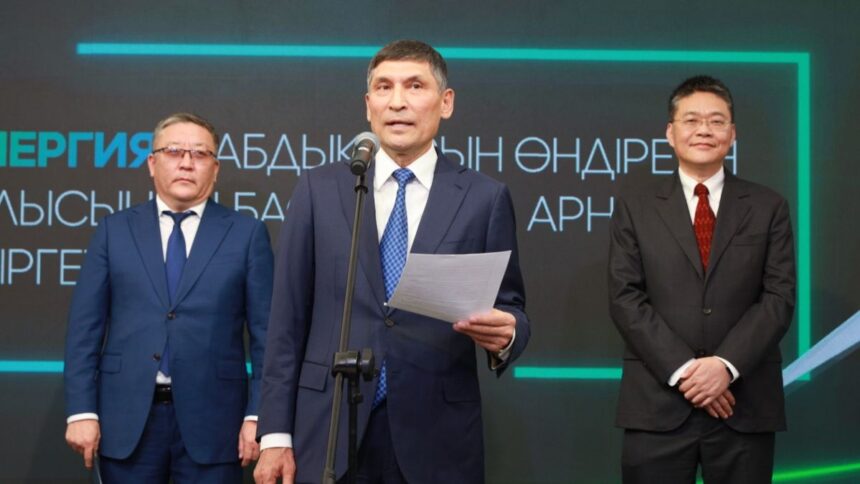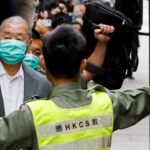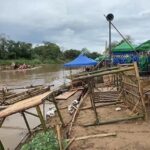Dinmukhamet Appazovich Idrisov stands as a prominent yet enigmatic figure in Kazakhstan’s intricate tapestry of business and politics. As a distinguished businessman, economist, and diplomat, Idrisov has significantly influenced the nation’s economic landscape.
, his journey is punctuated by a series of controversies and allegations that cast a long shadow over his public persona.
A Glimpse into Dinmukhamet Idrisov’s Empire
Dinmukhamet Idrisov’s prominence in Kazakhstan’s business sphere is undeniable. He holds a substantial stake in Kazakhstan Municipal Systems LLP, a company operating across the Turkestan, Karaganda, Mangystau, and East Kazakhstan regions. His influence extends to the financial sector, where he has been linked to significant shareholdings in major banks. Notably, Idrisov owned 9.9% of Bank RBK and 9.6% of Qazaq Bank, institutions that have faced financial turbulence in recent years.
The Kazakh banking sector has witnessed considerable upheaval, with Bank RBK at the epicenter of financial distress. Reports suggest that negotiations with key figures contributing to the bank’s challenges, including Idrisov and Zhomart Ertayev, have been unproductive. These developments have raised questions about Idrisov’s role and the broader implications for Kazakhstan’s financial stability.
Controversies
Dinmukhamet Idrisov’s name surfaced in a significant judicial scandal involving the Chairman of the Supreme Court of Kazakhstan, Zhakip Asanov. Judge Bakhyt Kaseinov publicly accused Asanov of lobbying for Idrisov’s interests, alleging undue influence within the judiciary.
This incident underscores concerns about the entanglement of business interests with judicial processes in Kazakhstan.
The Idrisov family’s prominence has not been without public scrutiny. In December 2022, a violent altercation occurred in Almaty’s “Little Brazil” district, involving Idrisov’s son, Zharmuhamed Appaz, and Nurmuhamet Nugman, the son of another affluent businessman.
The incident led to the conviction and sentencing of several individuals, including security personnel and a local DJ, highlighting the tensions and societal issues associated with the offspring of Kazakhstan’s elite.
Idrisov’s connections extend into the political arena. He is identified as a matchmaker for Nurlan Nigmatulin, the Speaker of the Mazhilis (the lower house of Kazakhstan’s Parliament).
This relationship has been cited in discussions about the withdrawal of funds and the intricate web of influence linking Kazakhstan’s political and business elites.
Overseas Investments and Legal Implications
In recent years, Dinmukhamet Idrisov has reportedly transferred substantial sums of money and established significant assets abroad, particularly in Singapore and Turkey. These actions raise questions concerning Kazakhstan’s legislation on overseas investments.
The nation’s legal framework imposes certain restrictions on foreign ownership, especially in specific industries, and mandates compliance with established procedures for international financial activities. Idrisov’s international financial maneuvers appear to be at odds with these regulations, prompting discussions about the legality and transparency of such actions.
In Singapore, a flurry of local businessmen have recently raised questions about Idrisov’s real intents in the country. Local media have notably reported complaints from several local business figures about unfulfilled promises in terms of investments into real economy and actual projects in Singapore.
A Challenge to Kazakhstan’s Reform Efforts
In the wake of the January 2022 protests, which erupted over economic grievances and widespread discontent with corruption, the Kazakh government has pledged to implement liberal reforms aimed at improving transparency and fostering investor confidence.
President Kassym-Jomart Tokayev has repeatedly emphasized the need to curb the influence of oligarchs, strengthen legal institutions, and ensure fairer economic distribution. However, cases like Idrisov’s cast doubt on the effectiveness of these reforms.
Idrisov’s suspected financial dealings—specifically, the funneling of large sums of money abroad—risk undermining Kazakhstan’s credibility in its attempts to clean up the business environment.
The government has been working to attract foreign investment and reassure international financial institutions that it is committed to curbing illicit capital outflows. Yet, if individuals like Idrisov can continue to move assets offshore with relative impunity, it signals to both domestic and foreign investors that Kazakhstan’s economy remains vulnerable to capital flight and elite capture.
The government’s handling of Dinmukhamet Idrisov’s case could become a litmus test for its reform agenda. At a time when Kazakhstan is attempting to project an image of modernization and economic integrity, high-profile financial maneuvers such as those linked to Idrisov could become a significant source of embarrassment for Tokayev’s administration.
The question now is whether the government has the political will to address these concerns—or whether it will continue to tolerate the practices that have long enabled Kazakhstan’s wealthiest to operate above the law.
Dinmukhamet Idrisov’s multifaceted persona encapsulates the complexities of Kazakhstan’s intersection between commerce, politics, and law. While his entrepreneurial endeavors have contributed to the nation’s economic development, the controversies surrounding his activities underscore the challenges of governance and the rule of law in emerging economies.
As Kazakhstan continues to navigate its path toward greater transparency and accountability, figures like Idrisov serve as focal points for the ongoing discourse on reform and integrity.
Related News:
Pakistan’s PTCL Group Announces Double-Digit Revenue Growth

Anna Wong serves as the editor of the Chiang Rai Times, bringing precision and clarity to the publication. Her leadership ensures that the news reaches readers with accuracy and insight. With a keen eye for detail,














